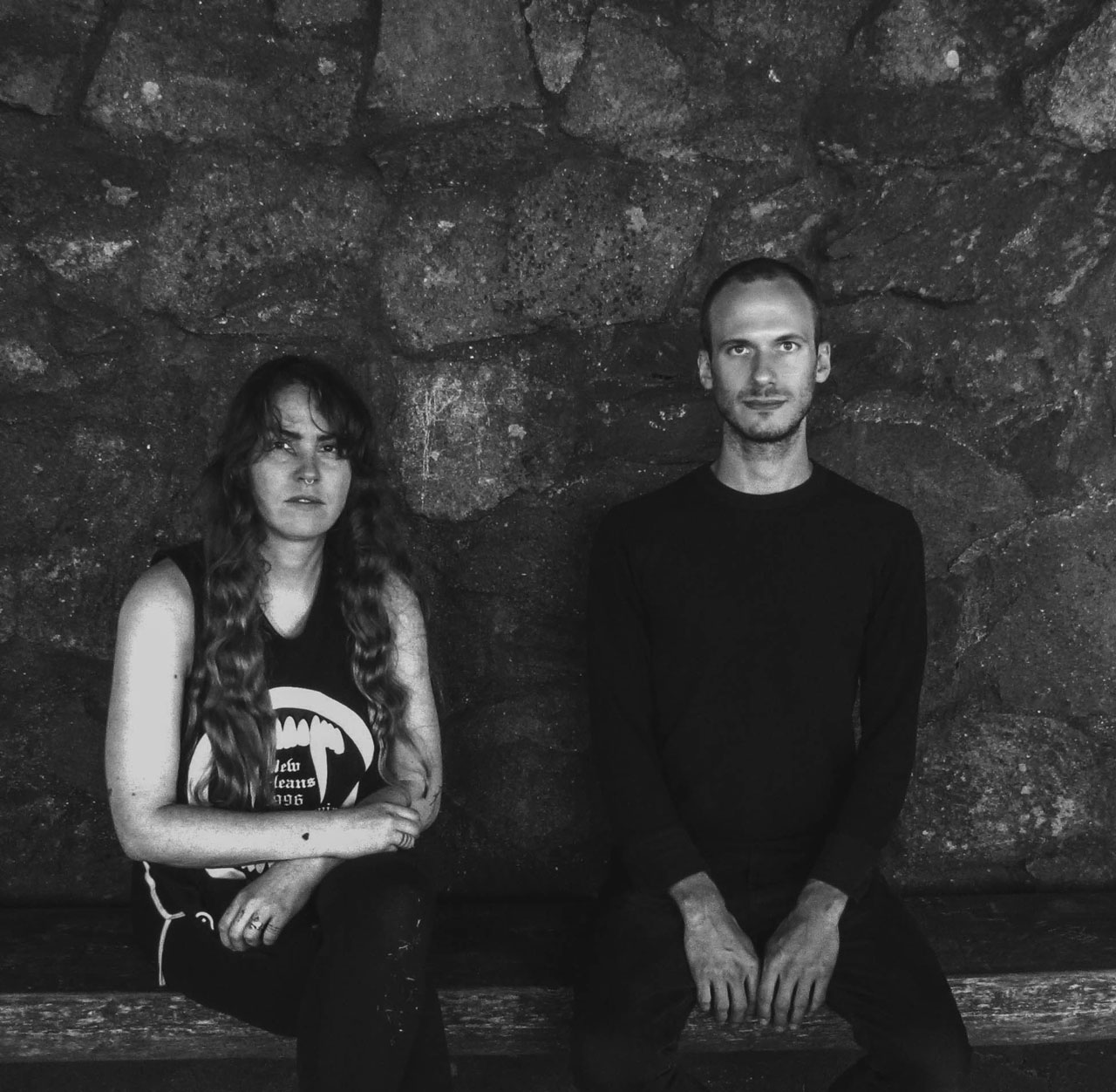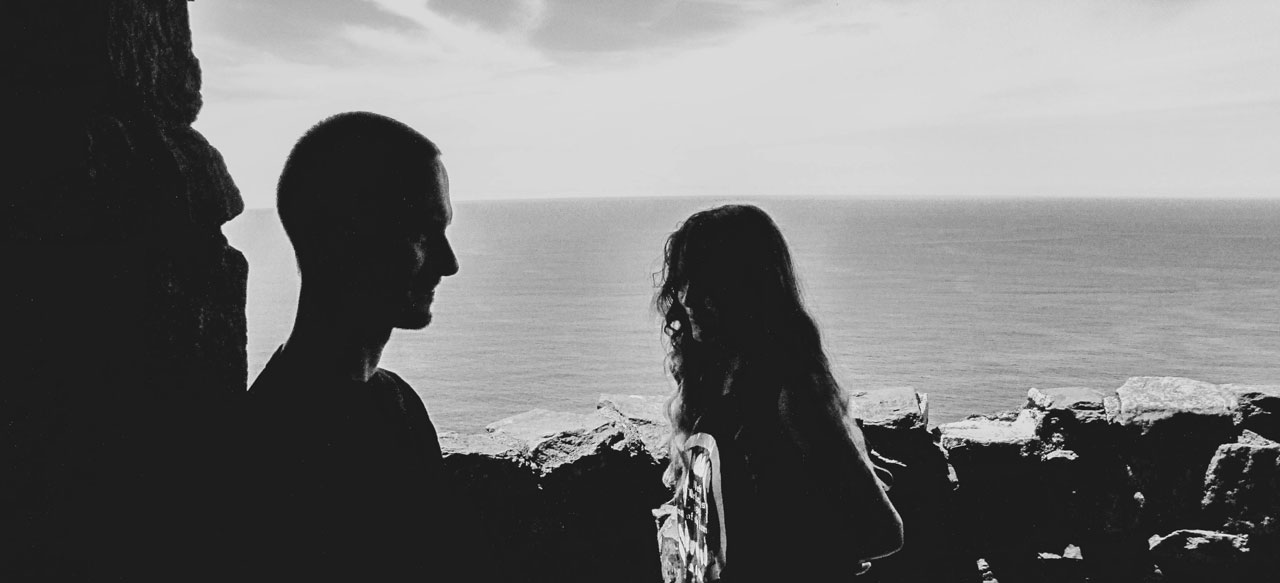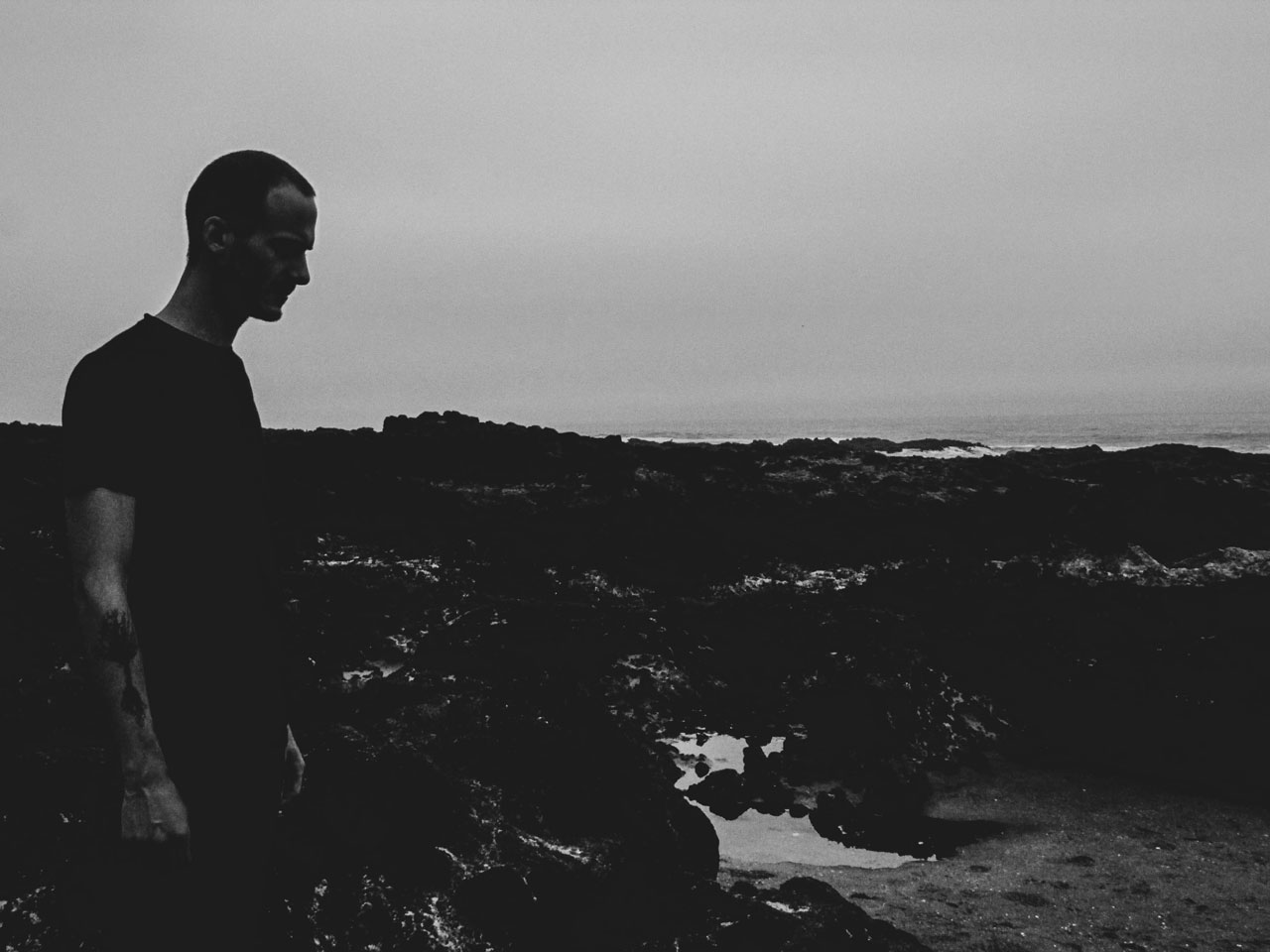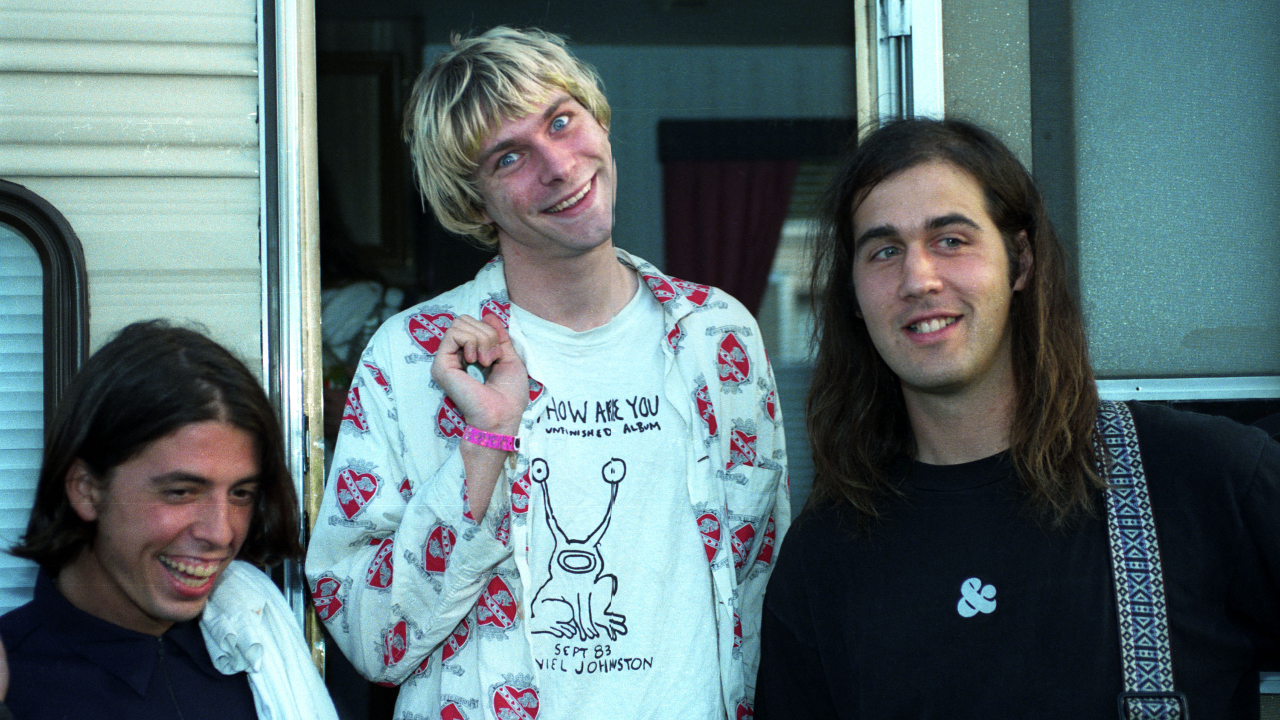Emma Ruth Rundle in conversation with black metal outfit Mizmor
Emma Ruth Rundle and A.L.N. – the man behind black metal act Mizmor – took a hike to discuss life, religion and art, while picking apart Mizmor's new album one lyric at a time
Select the newsletters you’d like to receive. Then, add your email to sign up.
You are now subscribed
Your newsletter sign-up was successful
Want to add more newsletters?

Every Friday
Louder
Louder’s weekly newsletter is jam-packed with the team’s personal highlights from the last seven days, including features, breaking news, reviews and tons of juicy exclusives from the world of alternative music.

Every Friday
Classic Rock
The Classic Rock newsletter is an essential read for the discerning rock fan. Every week we bring you the news, reviews and the very best features and interviews from our extensive archive. Written by rock fans for rock fans.

Every Friday
Metal Hammer
For the last four decades Metal Hammer has been the world’s greatest metal magazine. Created by metalheads for metalheads, ‘Hammer takes you behind the scenes, closer to the action, and nearer to the bands that you love the most.

Every Friday
Prog
The Prog newsletter brings you the very best of Prog Magazine and our website, every Friday. We'll deliver you the very latest news from the Prog universe, informative features and archive material from Prog’s impressive vault.
Part 2 - Emma Ruth Rundle on her upbringing, religion, art, and life
A.L.N.: I want to flip some of these questions back on you here and there too. Like, maybe you have a reason why you’re alive?
E.R.R.: I thought about it a lot when you were talking about “Cairn to Suicide.” I definitely had a moment for me, before, when I was writing “Marked For Death.” I was in a very transient moment in my life: going back and forth between semi-stability and ending up in these in between places, which is just a way that I live. I was at Cathy’s (Sargent House).
She had this bunk room and I was laying there. I don’t know how old I was. I must have been about 31 or 30, maybe 32. I don’t know. I was like, ‘alright, well…’ For me, it wasn’t as much a decision as a realization of like, ‘I didn’t expect to live this long but at this point it’s clear that I’m just going to keep living.’
You know, no amount of drugs or alcohol that I do at any time and then stop doing, or whatever lifestyle I’m living there’s not… I’m not committed to dying, really. I didn’t expect to keep existing but it’s clear that that’s what’s going to happen. I remember very specifically having that moment. I’m going to persist somehow, against all odds.
Without a choice, I am here, I exist, I am going to continue to be, and I want to continue to make art. There’s always this moment of giving up and then recommitting to moving forward and trying to regroup and craft what the next statement is or what that’s about, and that just in doing that and making a decision to continue to make music or focus on a new album is in a way recommitting to living.

A.L.N.: Yeah, it is, absolutely. That’s a great way of saying that. What’s your opinion on the question of god? Like, what’s your worldview in terms of theism, atheism, or anywhere in between?
E.R.R.: I don’t really know that I possess the educated vernacular to discuss it in depth. The way that I was raised was sort of being dragged through a lot of different cults.
Sign up below to get the latest from Metal Hammer, plus exclusive special offers, direct to your inbox!
Early on in our lives (mine and my sister’s), I was baptized as a child, as a baby. I think I actually have memories of it. I guess this is more an impression of religion. We went to an Episcopalian preschool.
I remember being moved by the music in some way and I think that a lot of it is very beautiful. Anyway, that’s the brush with Christianity that I’ve had.
Watching somebody so desperately trying to find any kind of meaning whether it was a god or gods or a cult devalued it.
I just have a hard time respecting that approach and now as I’m an adult I can understand a little more that that was born of affliction and addiction, hoping that something outside yourself would be responsible and have an answer when that just doesn’t exist.
A.L.N.: Exactly. That happens a lot in a concentrated way, in a specific example, even within the Christian world. Like I remember thinking growing up that certain people, and this is Christian vernacular I don’t know if it will translate, had cooler testimonies than me (testimony meaning your story of how you found god).
And the common trend is that the people with the strongest faith, that were most ‘on fire for the Lord’, living that life, had these radical stories and they found god in these incredibly low moments, you know?
And it’s not surprising that something that promises answers, comfort and salvation, would only be turned to and needed in your most desperate moment.

E.R.R.: Are you familiar with the twelve-step programs at all?
A.L.N.: Vaguely. Been to a meeting.
E.R.R.: So there’s sort of an idea that goes around that a lot of people have to find their rock bottom.
And you can say for Individual A, as an example, that rock bottom is going from having a family and whatever to not… having to not having, to such an extreme - living under a bridge, having nothing to eat; man, lady, whoever walks around with holes in their shoes, they’ve pissed away their savings on gambling and prostitutes and whatever, this that and the other thing, whatever it means for them… hitting absolute rock bottom and then catching their own reflection, and through that having this moment of like…
I guess it’s kind of similar, you come to the program and you’re saved by the higher power in that way and you receive the twelve steps and there is a parallel I think between that and Christianity. I mean, they specifically talk about god and do the serenity prayer.
Which I actually think is a very powerful prayer and is a beautiful idea. "God grant me the serenity to accept the things I cannot change, courage to change the things I can, and wisdom to know the difference.” I dunno I think that there’s some good guiding points and ways to live your life.
A.L.N.: Yeah, I think that hitting rock bottom and having a moment of realization is a natural thing that turns a person around. It doesn’t always happen, but it could be anything that helps you get from the bottom back up towards the top, you know?
You don’t have to surrender to god and be saved in your weakest moment. You need to recognize your weakest moment and the twelve steps, for example, help people make progress in moving away from that weakest moment, but I certainly don’t think that you have to believe in god to progress past rock bottom.
People hit rock bottom, some realize it, some don’t, and at no point does it have to become about god. I mean the higher power thing, that’s a struggle for me.
E.R.R.: Yeah that’s a struggle for me too, honestly.
A.L.N.: The community could be your higher power and a lot of times that’s rooted in a religion and that’s one benefit for religious folks is the community.
E.R.R.: For sure.
A.L.N.: It’s still based on a lie, but… [Laughs]

E.R.R.: I feel like that’s what I’ve struggled with in trying to get help with my own addiction issues. In the twelve steps, not just the higher power thing, but also just the giving over to the communal aspect of it.
I personally feel very much permanently an outsider from social groups, because of how we were raised, that almost prevents me from having something like that work for me because there’s just the pervasive knowledge that everything is false in some way.
I don’t want to discourage any of my friends that have found a path to sobriety or who may otherwise be living in a way that would ultimately end in a miserable drawn out death. That would hurt everyone around them and themselves. Misery… a different kind of misery.
A.L.N.: Right. There’s a lot of helpful things about the twelve-step program, there’s even helpful, good things about religion and for certain people, in a moment, it’s what they need and I won’t discredit that.
I just think that god doesn’t need to be part of the twelve-step program nor does he need to be part of whatever other community you need to have that, you know what I mean? All that stuff is cool and good and all, it just doesn’t need to get taken to the magical place, you know?
E.R.R.: Right, but if that works for people, that’s something that, I guess what I’m saying is, I personally envy. I wish that that was something… that verisimilitude, like being able to go in, have it overtake you, and the belief of what you’re involved in trumps your analytical brain, your thoughts, you know what I mean?
A.L.N.: Yeah I mean, sure, ‘cause ignorance is bliss but at the end of the day I’d rather know the truth, even if it hurts.
E.R.R.: Yeah, but the ultimate truth being that there is no truth and we can never really know anything.
Current page: PT 2. - E.R.R. on her upbringing, religion, art, and life
Prev Page PT. 1 - A.L.N. on Cairn, religion, and life Next Page PT. 3 - Cairn lyrics unpacked